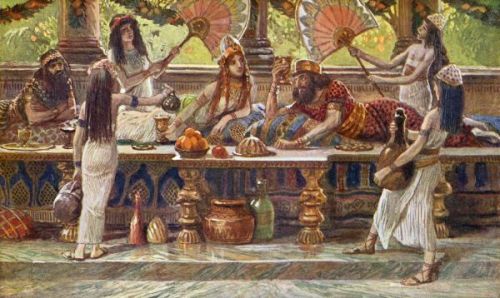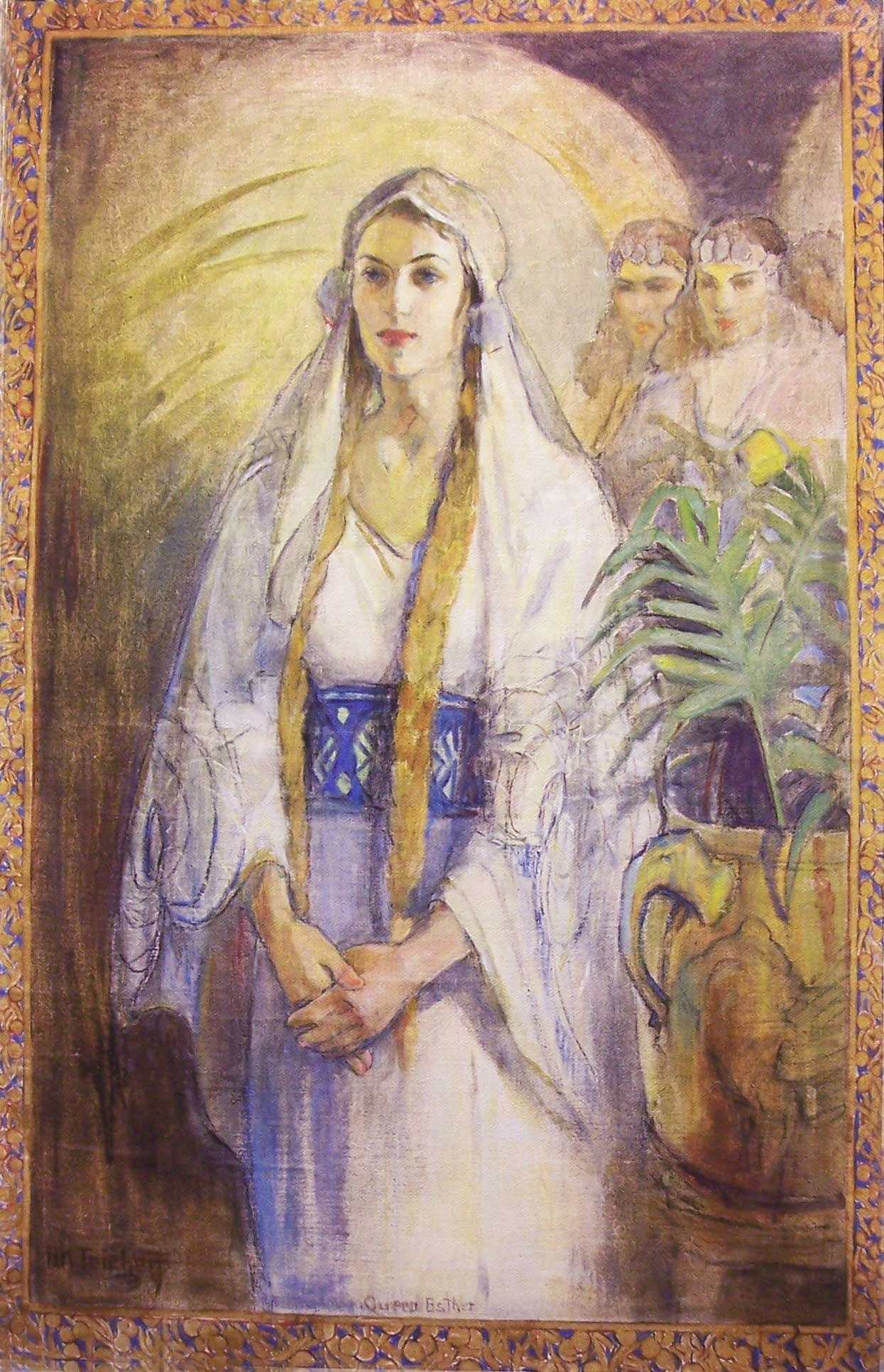Hey guys! My last post was an Intro to Jewish Folktales. Following in that vein, today I'm going to be talking about the Jewish folk hero named Esther.
The Jewish people have quite a few festivals that they celebrate every year. These festivals are to commemorate special events in the history of the Jews. One such celebration, the Festival of Purim, remembers the story of a girl named Esther and the way she saved her people from destruction. The full tale can be read in the Book of Esther (interestingly the only book in the Bible to not mention God) or in the movie One Night with the King [for those of you who prefer visuals over text (or just like John Rhys-Davies)], but I'll give you a condensed version.
The story goes like so:
There was once a Persian king named Ahasuerus. (This king has been historically identified with Xerxes I - does the name sound familiar? A certain movie involving three hundred Spartans might explain why...)
King Ahasuerus had a beautiful wife, Queen Vashti. At that time men and women often dined separately from one another. During a party with some friends (and after a few drinks) Ahasuerus began to boast of Vashti's beauty. His friends wanted to see her looks for themselves, so Ahasuerus sent a messenger commanding the queen to make herself beautiful and come to him.
When the message reached Vashti she was less than pleased to be told to parade her looks before the king's guests like a common dancing girl. To make a long story short, she refused to come before the king. He was frustrated by this, and his guests were worried that their own wives might decide that they could refuse their husbands if the queen set a precedent for it, so Ahasuerus dismissed Vashti.
Of course, this left the king without a queen - and that could not be. All of the beautiful maidens in the land were summoned so that the king could choose a new bride from amongst them. One of these women was a girl named Esther, born Hadassah. Esther had been orphaned and fostered by her cousin Mordecai. Mordecai and Esther were both Jewish, though Esther kept this fact hidden from the king. The girl was very beautiful, and she was chosen to be the new queen.
Around this time Mordecai overheard two members of the palace plotting to kill Ahasuerus. He sent a message to Esther, who warned the king, and in so doing saved Ahasuerus' life. The event was recorded with credit going to Mordecai, but the king forgot to reward the Jew.
Now, Ahasuerus had an advisor - a vizier - named Haman. (Of course he would be a vizier! So many of the best villains are!) Haman was passing through the town outside the castle walls one day, and everyone fell before him and bowed...except for one man. That man was Mordecai. Mordecai, as a Jew, did not wish to show obeisance to a man who was descended from the enemies of the Jews.
Haman was furious at this lack of respect, and rushed to Ahasuerus. He told the king that there was a culture who refused to bow to their betters and serve them, and that they must be disposed of to preserve the king's reign. Ahasuerus granted Haman permission to kill the Jews. The vizier cast lots to determine the day on which the extermination would take place. It is from the Jewish word for lot - "purim" - that the name of the festival comes from.
Bans were posted announcing the date that the extermination was to take place. Mordecai tore his clothes and rubbed his face with ash (a sign of mourning) when he saw the signs. He took the news to Esther and begged her to use her influence with the king to try and stop the genocide that was scheduled - but the queen was afraid. There was a rule in the court that no one could approach the king without permission on pain of death. She did not want to lose her life by attempting to speak to Ahasuerus.
Despite her fear, Esther was loyal to her people. She asked Mordecai to have the Jews fast for three days and pray for her. At the end of these three days Esther approached Ahasuerus. To her relief, he extended his rod of command upon seeing her approach - a sign that he would allow her to speak to him, and would not take her life as punishment.
Esther invited the king and Haman to come to a banquet she had prepared. They came and dined, and she extended a similar invitation for the following night. After dinner Ahasuerus found himself unable to sleep. He ordered a servant to read documents of the court to him, and in so doing heard of Mordecai's previous efforts to save the king from assassination. The king realized that he had never rewarded Mordecai for his actions.
The following morning Haman entered the king's chambers in a great mood. He was so sure of Mordecai's coming destruction that he had constructed a gallows in front of his home from which to hang the Jew. As Haman came before Ahasuerus the king asked him how the vizier would honor a man who had aided the king. Thinking that Ahasuerus was speaking of Haman, the man proudly answered that he would have the savior dressed in one of the king's robes and paraded through the city for all to see. Haman was horrified when Ahasuerus ordered him to honor Mordecai in this way!
That night Ahasuerus and a seething Haman went to Esther's dinner. At the second banquet Esther told the king that she was a Jew, and that Haman was seeking to end her life and the lives of her people. Ahasuerus stepped outside to think, and Haman flung himself before Esther and begged for his life. Unfortunately, Ahasuerus walked back in at this moment and thought that Haman was attacking the queen. Furious, the king ordered Haman killed - and, when he was informed that Haman had a gallows ready-made outside his home, ordered him hung there.
I believe that's what is called irony, folks.
The story ends on a happy note. Unable to get rid of a rule he had already created, Ahasuerus instead issued a new proclamation that gave the Jews the right to defend themselves on the designated day of their destruction. The Jews survived, and many Persians who attempted to kill them - including some of Haman's family - were killed instead. It is this survival, and the victory over their enemies, that Jews today still celebrate in March during the Festival of Purim.
I'll end my post there - I hope you guys enjoyed it! As I said in my last post, next week I'll be talking about Hanukkah. I'm very excited, and I hope you'll like what I have written! What did you think of the story of Esther?





No comments:
Post a Comment